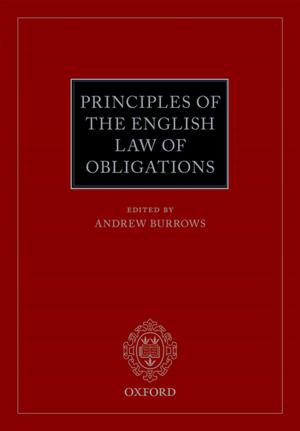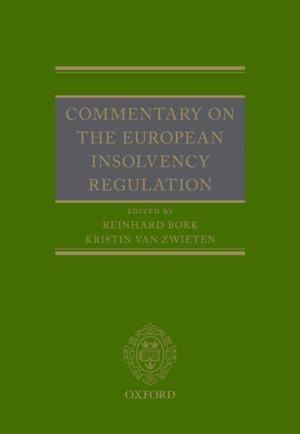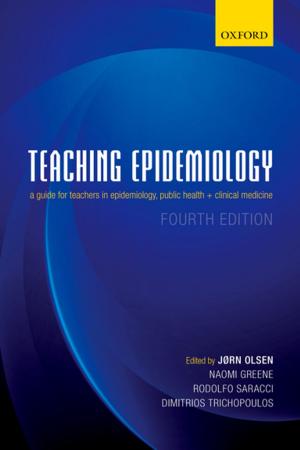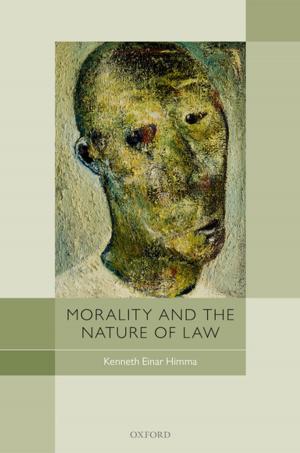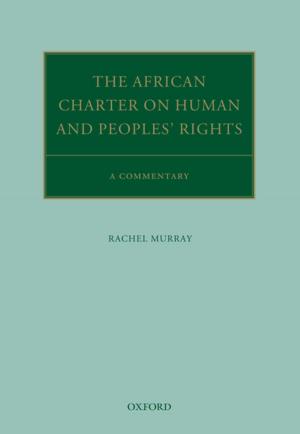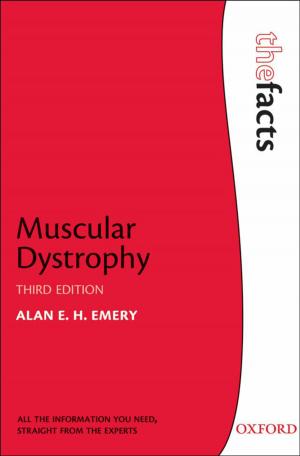International Refugee Law and the Protection of Stateless Persons
Nonfiction, Reference & Language, Law, Public, Social & Cultural Studies, Social Science| Author: | Michelle Foster, Hélène Lambert | ISBN: | 9780192515551 |
| Publisher: | OUP Oxford | Publication: | April 4, 2019 |
| Imprint: | OUP Oxford | Language: | English |
| Author: | Michelle Foster, Hélène Lambert |
| ISBN: | 9780192515551 |
| Publisher: | OUP Oxford |
| Publication: | April 4, 2019 |
| Imprint: | OUP Oxford |
| Language: | English |
International Refugee Law and the Protection of Stateless Persons examines the extent to which the 1951 Convention relating to the Status of Refugees protectsde jure stateless persons. While de jure stateless persons are clearly protected by the 1954 Convention relating to the Status of Stateless Persons, this book seeks to explore the extent to which such persons are also entitled to refugee status. The questions addressed include the following: When is a person 'without a nationality' for the purpose of the 1951 Refugee Convention? What constitutes one's country of former habitual residence as a proxy to one's country of nationality? When does being stateless give rise to a well-founded fear of persecution for reasons specified in the 1951 Refugee Convention and/or UNHCR mandate? What are the circumstances under which statelessness constitutes persecution or inhuman or degrading treatment? How are courts assessing individual risk or threat to stateless persons? The book draws on historical and contemporary interpretation of international law based on the travaux préparatoires to the 1951 Refugee Convention and its antecedents, academic writing, UNHCR policy and legal documents, UN Human Rights Council resolutions, UN Human Rights Committee general comments, UN Secretary General reports, and UN General Assembly resolutions. It is also based on original comparative analysis of existing jurisprudence worldwide relating to claims to refugee status based on or around statelessness. By examining statelessness through the prism of international refugee law, this book fills a critical gap in existing scholarship.
International Refugee Law and the Protection of Stateless Persons examines the extent to which the 1951 Convention relating to the Status of Refugees protectsde jure stateless persons. While de jure stateless persons are clearly protected by the 1954 Convention relating to the Status of Stateless Persons, this book seeks to explore the extent to which such persons are also entitled to refugee status. The questions addressed include the following: When is a person 'without a nationality' for the purpose of the 1951 Refugee Convention? What constitutes one's country of former habitual residence as a proxy to one's country of nationality? When does being stateless give rise to a well-founded fear of persecution for reasons specified in the 1951 Refugee Convention and/or UNHCR mandate? What are the circumstances under which statelessness constitutes persecution or inhuman or degrading treatment? How are courts assessing individual risk or threat to stateless persons? The book draws on historical and contemporary interpretation of international law based on the travaux préparatoires to the 1951 Refugee Convention and its antecedents, academic writing, UNHCR policy and legal documents, UN Human Rights Council resolutions, UN Human Rights Committee general comments, UN Secretary General reports, and UN General Assembly resolutions. It is also based on original comparative analysis of existing jurisprudence worldwide relating to claims to refugee status based on or around statelessness. By examining statelessness through the prism of international refugee law, this book fills a critical gap in existing scholarship.





